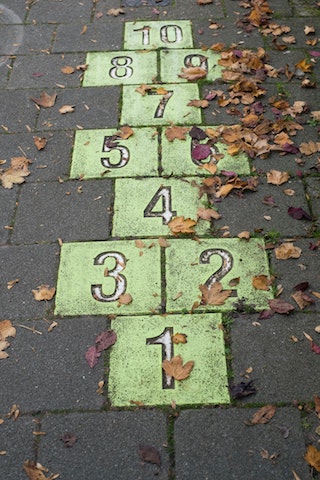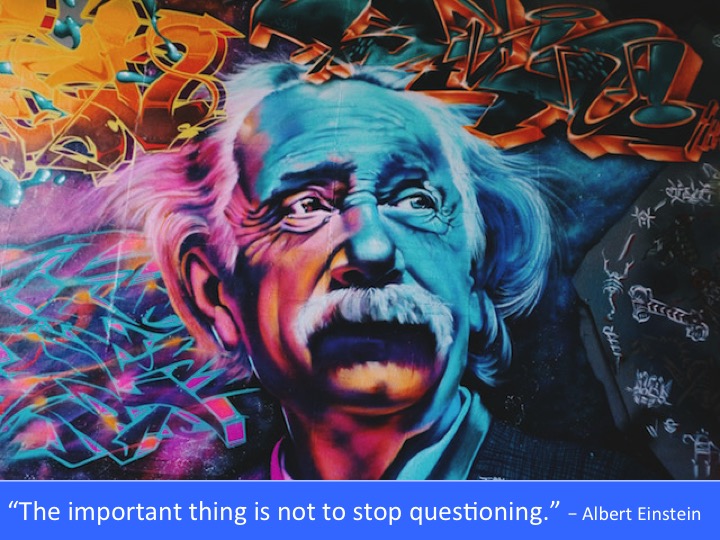What Does It Really Take to Learn Anything from Somebody Else?

Since 1987, I have been providing consulting and training services to a wide variety of forward thinking organizations who have recognized their need to raise the bar for creative thinking, innovation, and teamwork. An optimist, by nature, I have always assumed that the people attending my sessions had an innate ability to benefit from whatever it was I was teaching, conveying, or imparting.
And while this optimistic point of view continues to be my default position, I have also understood that there are obstacles that often get in the way of people receiving the maximum value of what I (or any teacher, instructor, or facilitator) has to offer.
It is, shall we say, an occupational hazard.
Some of these learning obstacles are internal (i.e. participant mindset) and some are external (funky organizational culture). But no matter where these obstacles originate from, each of them can be decreased or eliminated with the right kind of effort.

Ready? Here you go. Ten ways to increase your odds of getting the most possible value from whatever workshop, training, seminar, or class is coming up for you:
1. Find Your Intrinsic Motivation: If you want to learn something new, you will. If you don't want to learn something new, you won't. That's about as simple as it gets. Intrinsic motivation is all about your authentic, deeply felt, self-generated aspiration. Your mojo. Your willingness. The "inner reward" you experience for doing anything at all -- not because of carrots and sticks being dangled before you, but because of your inherent thirst to learn or experience something new.
If you are the person responsible for the success of your organization's Professional Development efforts, ask yourself one simple question: "How can I awaken the intrinsic motivation of our workforce?" If you are an "individual contributor" who has been invited, requested, or told to attend an upcoming Professional Development session, ask yourself this: "How can I find the motivation within myself to embrace this learning opportunity with as much passion as possible?"
2. Trust the Teacher Anyone who wants to learn something new will eventually need to trust the person who's doing the teaching. If not, it doesn't matter if it's Einstein, Jesus, or the Prophet Mohammed standing before you. Trust is essential to learning, as it is to any relationship. As an experiment, try assuming the best in your workshop leader, trainer, or meeting facilitator. Give them a chance to do their thing. And if you should find yourself in an untrusting state of mind, pause of a moment and ask yourself what you need to do (or say or ask) in order to trust the teacher enough to be their student for a while.
 3. Practice/Apply What You Learn: Most trainings, workshops, or classes, are a kind of introduction to the topic -- a way to get immersed, for a while, in that particular domain. You learn about the topic, but don't immediately develop mastery. For that to happen, you will need to practice and apply what you learn. If you've ever seen a karate master break a stack of bricks with his hand, there's a very good chance he didn't quite do it the first time he tried. Practice makes perfect.
3. Practice/Apply What You Learn: Most trainings, workshops, or classes, are a kind of introduction to the topic -- a way to get immersed, for a while, in that particular domain. You learn about the topic, but don't immediately develop mastery. For that to happen, you will need to practice and apply what you learn. If you've ever seen a karate master break a stack of bricks with his hand, there's a very good chance he didn't quite do it the first time he tried. Practice makes perfect.
4. Be Patient: In an age, where a Google search can fetch you esoteric information in 1.4 seconds, all of us have become accustomed to instantaneous results. That might be fine for learning what the capital of Latvia is, but not so fine when it comes to mastering the art of giving feedback, facilitating successful meetings, or becoming an effective team leader. Learning takes time. Developing new skills takes time. Making positive changes takes time. Patience, my friend. Patience!
5. Ask Questions: "The important thing," said Albert Einstein, "is not to stop questioning." Bingo! If you have entered into some kind of Professional Development effort, one of the best ways to get the most value from it is to ask questions. And this process begins with you asking yourself questions so you can identify the value of what it is you want to learn. Then ask your teacher/instructor -- before class, during class, or after class. If you are not getting the value you came for, the ball's in your court. If you don't understand something, ask. If you're not getting the value of what you came for, ask the teacher to deliver the information, tools, or techniques in a way that works better for you. And if you choose not to ask, then ask yourself why you're not asking.

6. Become Aware of Your Self-Interferences: As you begin to engage in a new learning effort, pause for a moment and see if you can identify the "stuff" that, historically, has gotten in your way of learning anything new -- your self-interferences or what Tim Gallwey, Founder of The Inner Game, refers to as "Self-One." HINT: If you are a human being, it's probably one of the following: self-talk, self-doubt, skepticism, arrogance, limiting assumptions, lack of follow through, fear of failure, laziness, or impatience. If it's none of those, it's always possible that you simply don't see the value (for you) of the class, workshop, or training you've been ask to attend.
7. Acknowledge Your Progress: The proverbial cup may look half empty to you at times, but it's equally true that it is also half-full. Acknowledging and appreciating the progress you are making in your learning adventure will go a long ways towards keeping you in a positive frame of mind and looking forward to what's coming next. NOTE: The word "success" comes from the same root as the word "succeeding" (taking one step after another.) "The journey of a thousand miles begins with a single step," said Lao Tzu. Indeed! See if you can notice and appreciate each step along the way. You are making progress. You are! Here's a simple technique you can try towards that end. Works like a charm and takes less than five minutes.

8. Remember the Stories (and share them with others): It is highly likely that the facilitators of future workshops, trainings, or classes you will attend are going to make their point, from time to time, by telling stories. And that's because stories are one of the best ways to transmit knowledge and wisdom. If you truly want to imbibe the teachings that will be shared with you, remember the stories. And, better yet, share those stories with others. The more you share them, the more the wisdom embedded in those stories will reveal itself to you.
9. Come to Class with an Uncluttered Mind: If you are a teacher, engineer, sales person, manager, software programmer, team leader, nurse, carpenter, or VP of something or other, there's a good chance you have a lot on your mind. Even your To Do list has To Do lists.
If you want to get maximum value from whatever Professional Development offering is on the horizon for you, it is your responsibility to come to the session with an uncluttered mind. Be empty. Be ready to receive. Be open to what's coming your way. Here's what the Zen tradition has to say about this phenomenon.
10. See #3.
FOOD FOR THOUGHT: What can you do, in the next week, to ensure that you get the most value out of whatever Professional Development efforts are coming your way?
Photo #1: Michael Porro, Unsplash
Photo #2: Krzysztof Niewolny, Unsplash
90 quotes on education and learning
MitchDitkoff.com
Idea Champions
Comments
Thank you for all the effort you making at Alsiraat Mitch.
Posted by: Maryam Omer ![[TypeKey Profile Page]](https://www.ideachampions.com/weblogs/nav-commenters.gif) at July 16, 2020 12:37 PM
at July 16, 2020 12:37 PM
Post a comment
Thanks for signing in, . Now you can comment. (sign out)
(If you haven't left a comment here before, you may need to be approved by the site owner before your comment will appear. Until then, it won't appear on the entry. Thanks for waiting.)














